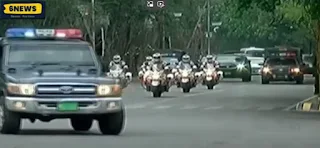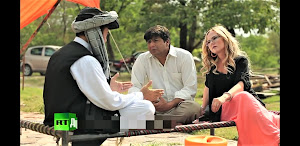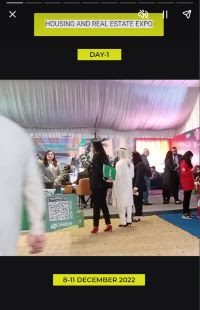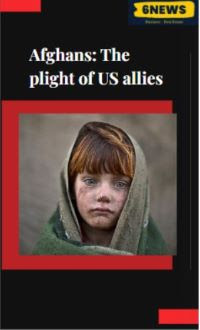News Analysis
By Atif Khan
Iran's President, Dr. Seyed Ebrahim Raisi, concluded his high-level engagement in Pakistan and returned to Tehran with his wife and a delegation on Wednesday.
During the three-day official trip, he met with Pakistan's President, Prime Minister, Army Chief, Senate Chairman, National Assembly Speaker, provincial leaders, religious scholars, business leaders, and government officials. The international media closely monitored and speculated about the possible reasons behind the high-level visit.
Pakistan and Iran have been close allies since 1947, and Iranian presidents have made numerous appearances in Pakistan, but this time the situation is entirely different. The Iranian president has arrived in Pakistan at a time when tensions in the Middle East are at their peak due to the Israel-Gaza conflict and recent Iran-Israel tensions.
Pakistan-Iran has a long history of close economic and military cooperation, but early this year, Pakistan and Iran also became at unprecedented loggerheads, and each stricked inside each other's territories, targeting separatists, whom they jointly label as terrorists. Although the visit has been projected as an attempt to mend ties with Pakistan after recent skirmishes and boost trade ties, a closer look at the content discussed during the meetings suggests the visit has much deeper significance.
According to the Ministry of Foreign Affairs of Iran, Pakistan and Iran reviewed the entire spectrum of Pakistan-Iran bilateral relations and exchanged views on regional and global issues of mutual concern during the talks.
Pakistan and Iran agreed to expeditiously finalize the Free Trade Agreement (FTA) and boost their bilateral trade to USD 10 billion over the next five years through joint economic projects. Pakistani media reported the signing of eight agreements and MoUs between the two neighbors.
But trade alone is not the sole reason for the Iranian president's visit to Pakistan. Although Pakistan's official annual trade with Iran was just $2 billion in 2023, the unofficial trade is very large. More than 2.81 billion liters of oil is smuggled from Iran to Pakistan each year through the 900-kilometer border, with Pakistan’s Baluchistan province on one side and Iran’s Sistan and Baluchestan provinces on the other. Pakistani markets are flooded with Iranian cooking oil, grocery, confectionary, and daily use items.
Out of 28 points mentioned in the joint statement of President Raisi and Prime Minister Sharif, issued by the host, only two emphasize the importance of mutual interest. The first is the free trade agreement, and the second is the trade in electricity, power transmission lines, and the Iran-Pakistan Gas Pipeline Project. Iran has cheap electricity and large gas reserves, from which energy-strapped Pakistan can immensely benefit. For Iran, Pakistan is a potential neighboring market where it may sell its products.
Since 1979, Iran has been under various sanctions from the United States for Iran's nuclear program and Iranian support for Hezbollah, Hamas, and Palestine Islamic Jihad, which the US labels as terrorist organizations. FTA and gas pipelines are still ambitious plans, as the US has again advised Pakistan recently not to engage in pipeline business with Pakistan. Can cash-strapped Pakistan, depending on the IMF to survive, initiate a pipeline without the approval of the United States? The answer is negative, with a period.
Throughout his speeches, Raisi consistently highlighted Gaza, expressing appreciation for Pakistan's commitment to the Muslim world. During his visit to the mausoleum of Allama Muhammad Iqbal, President Raisi expressed his desire to address the nation but mentioned that it could not happen due to certain reasons.
During his joint press conference with Prime Minister Shahbaz Sharif, Raisi talked more about Gaza and Palestine compared to trade or mending ties. His speech seemed to be aimed at garnering public support.
"I say salaam and greetings to the great people of Pakistan who have always been defending Islam, who have always been defending the religion, Islamic values, and who have always been supporting the innocent and oppressed people in different parts of the world, including Palestine and Gaza. I say salaam and greetings to the people of Pakistan who all-time come to the streets to protest in different cities of Pakistan and call for freedom of Al-Quds," President Raisi said in a joint press conference with Prime Minister Shahbaz Sharif.
His speech had a pointed message for the Pakistani government also. "At the same time, we respect the Pakistani people and government, who cannot tolerate anymore the oppression and injustice done against the people of Palestine and Gaza, and the genocide and child killing which is committed by the Israeli Zionist regime, with the support of the US and other Western countries, Raisi said, adding, the axis of cooperation between Pakistan and Iran at the bilateral, regional, and international level is based on human rights cooperation.
Does Iran want Pakistan's moral support in his conflict with Israel, or does it involve military and hardware?
The United States last week-imposed sanctions on four companies, including three from China, over the alleged supply of inputs for Pakistan's ballistic missile program. Pakistan rejected the allegations, declaring their political use of export controls.
The allegations of exporting arms on Pakistan, the world's 5th largest population, struggling to survive, are not new. Last year, a BBC report claimed that Pakistan entered into a $364 million arms sales agreement with two private US companies to supply weapons to Ukraine for its war with Russia.
The Intercept, a US publication, claimed that Pakistan supplied weapons to Ukraine via the United States in order to secure the IMF deal. Pakistan strongly rejected the report, insisting the country maintained a policy of strict neutrality.
Just a few days before the Iranian president's visit to Pakistan, Saudi Arabia’s Foreign Minister, Prince Faisal bin Farhan, visited Pakistan for two days. The Saudi foreign minister’s visit comes a little over a week after Crown Prince Mohammed bin Salman met Pakistani Prime Minister Shehbaz Sharif in Makkah and reaffirmed the Kingdom’s commitment to expedite an investment package worth $5 billion.
Pakistan has a history of supporting the United States, but the US has accused it of betrayal. With recent attention from the United States, Saudi Arabia's generosity, and the recent visit by the Iranian president, Pakistan may play an important role in the Middle East crisis. However, who Pakistan will align with remains uncertain.
Ends/









0 Comments